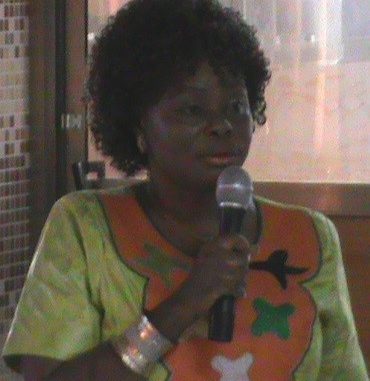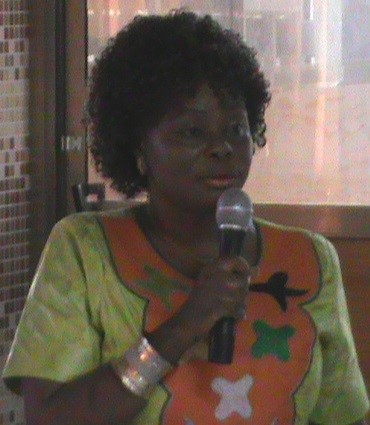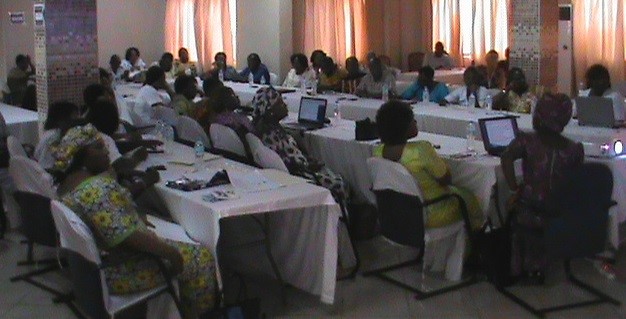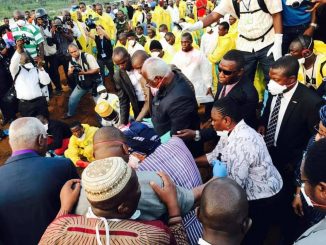
By Jonathan Abass Kamara
The Chief Nursing and Midwifery Officer Matron Hossinatu Koroma has reiterated her Directorate commitment to improve on the ethical and professional conduct of nurses at the level of international standards.
Chief Nursing and Midwifery Officer, Matron Hossinatu Koroma
Addressing an orientation meeting for the introduction of New Midwifery Technicians programme and preceptorship curriculum development held at the Leone Lodge, Lumley Beach in Freetown, Matron Koroma noted that they have challenges but must chat the way forward with the necessary structures that would make nursing a more viable institution.
Cross section of participants
The development of the recently initiated policy document she said aimed at sharing the background to its development, its rational to improve nursing services countrywide, describing its features as competency based.
She reminded her audience that there was no structure for nurses, and reiterated the justification for the ongoing development on career pathway in building an efficient human resource capacity in all health facilities. The Chief Nursing and Midwifery Officer said she has established structures for Focal Points in public, private and faith based health facilities, noting that they are the largest and interface between the Ministry and the public.
She spoke on Pillar one of the Post Ebola Recovery Plan which speaks about the patient and health worker safety and Infection Prevention and Control which they never had before and poses a challenge for the Ministry and the Nursing Directorate resulting to the death of 153 nurses.
Matron Koroma paid tribute to the fallen victims, and called on her colleagues to help prepositioned the nursing profession with a view to complementing government’s efforts in reducing the high incidence of maternal and neonatal mortality adding that the documents and strategy developed would also add to the number of Skilled Birth Attendants.
In 2014, there were 288 practicing Midwives, and the challenge, according to President Koroma’s commitment at the UN Summit was to increase the number from 288 to 1, 145 by 2020, and admonished her nursing team to work towards achieving the ultimate goal.
The policy developed, she said is first in the history of the Nursing Directorate, adding that they have reviewed the two curricula for the Midwifery schools in Freetown and Makeni with support from the World Health Organization (WHO).
The policy, she said would be operationalize by a strategic plan, and disclosed plans to move on an assessment tour of the 13 Nursing schools to provide supervision, and checks and balances with a set criteria where necessary to meet the expected standard.
Consultant and Adviser WHO Sierra Leone, Dr. Chika Ugochukuru in her presentation on the Rationale and why the curricula observed that State Enrolled Community Health Nurses (SECHNs) have not been meeting all their needs to get them deployed in rural communities and that the new training programme would help build up their midwifery content in 12 months period and reduce maternal and child mortality.
Commenting on the second programme the new Nurse Midwifery Technician, she outlined key areas of implementation which includes updating and filling the gaps in deficiencies, anatomy and physiology, behavoral sciences, therapeautic communication, competency based curriculum features, clinical expectations and skills, and using reference materials such the website, library, text books and journals and practical work to name a few.
She reiterated the importance of the curricula noting that it covers key stakeholders and custodian that are Regulatory Bodies, Training institutions: public, private and faith-based, Health facilities- tertiary and secondary, and professional associations connected with nursing services in Sierra Leone.
Main highlights include the Rationale and implementation and the way forward for 2016-2020.
Photo: Credit Kadrie Koroma





